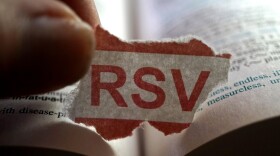Connecticut health officials said Friday that a 12th resident has been diagnosed with monkeypox.
The majority of the patients have not been hospitalized, officials said.
Many of the cases are connected to gatherings in New York, officials said at a Friday morning press conference.
It may not be possible to stop the spread of monkeypox by identifying the people who have been exposed, said Dr. Manisha Juthani, state health commissioner.
"I am getting concerned that we may not be able to achieve containment, and that we will move towards mitigation," Juthani said Friday morning at a press conference. "Mitigation being that we want to try to capture as many cases as we can and mitigate the spread of this virus."
Monkeypox is spread through close, prolonged contact, including coming into contact with skin lesions or body fluids, officials said. It causes a rash that can look like large pimples or blisters. Usually, people with monkeypox fully recover.
Residents concerned about fever, swollen glands and a new rash should contact their health care provider, Juthani said.
Connecticut’s first case was announced July 5. The Connecticut Department of Public Health announced Thursday that there were a total of 11 cases and all of the patients are between the ages of 20 and 50 and live in Fairfield, New Haven and Hartford counties.
State officials say testing for monkeypox is available from commercial laboratories, including LabCorp, Mayo Clinic and Quest. Providers can order testing from these laboratories as they would order other diagnostic tests.
Connecticut is currently offering monkeypox vaccine to people who have been exposed to the virus. Due to the state’s current low case count, health officials said Connecticut has not received a substantial allotment of the monkeypox vaccine from the federal government. More doses are expected soon.
Meanwhile, thousands more doses of monkeypox vaccine are expected to soon begin shipping to the U.S. after federal health officials said they had completed an inspection of the overseas plant where they were manufactured.
The update from the Food and Drug Administration comes amid growing frustration about limited access to the two-dose vaccine as thousands of people in New York City, California and other parts of the U.S. await a chance to get the shot.
Cases of monkeypox have been popping up across the Northeast, including New York, Massachusetts and Rhode Island. As of mid-July, more than 1,400 cases have been identified in the United States.

Experts want people to know that there are tests, treatments and vaccines for monkeypox. The viral disease is typically endemic in several central and western African countries.
"This is a known pathogen that did exactly what we predicted it could potentially do” – spread on a larger scale, said Anne Rimoin, an epidemiologist at the University of California, Los Angeles who recently spoke at a virtual expert panel hosted by Yale University.
Monkeypox usually spreads through close physical contact, including direct exposure to bodily fluids like saliva. The virus causes a rash, and if it first appears in the genital area, it could be mistaken for something like a sexually transmitted disease.
That's why Nathan Grubaugh of the Yale School of Public Health says community testing needs to be scaled up.
“It might make ordering these tests easier, especially in the circumstances when the symptoms resemble so many other common diseases,” he said.
Learn more
CDC monkeypox webpage
Connecticut Department of Public Health monkeypox webpage
Connecticut Public Radio's Matt Dwyer and Nicole Leonard and the Associated Press contributed to this report, which has been updated.




